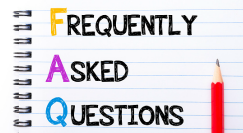
Yes. You need to have travel insurance to enter Cuba.Tour companies and cruise lines offer coverage with their packages, or a travel specialist can provide you with a quote for an independent travel company such as Travelex or Travel Guard.
This is in addition to:
- A U.S. passport valid for 6 months valid for 6 months after completion of travel
- Visa for Cuba (included in our packages)
- Signed affidavit that you are a licensed traveler on a "People to People" educational program or in Support of the Cuba People program
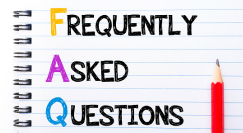
Yes, but you must make sure that you are traveling with
only those travel companies that are approved & licensed by the US government
to travel to Cuba under the People to People Education Program, or in Support of the Cuban People category (31 CFR 515.574 - Support for the Cuban People). We only
sell packages from tour operators and cruise lines that are Licensed by the
U.S. Treasury Department's Office of Foreign Assets Control (OFAC). These
cruises & tours offer you the opportunity to immerse yourself in Cuban
culture by interacting and engaging with the people of Cuba including artists,
farmers, health-care professionals, children and other locals. Your
professional, English-speaking tour guide will help facilitate many of your
interactions with the Cuban people that you encounter throughout your trip.
Atlas
Travel Center, Inc. is distributing people-to-people tours & support of the Cuban people programs, as an agent for the tour principal tour organizer and provider,
and not as a tour operator itself. Tour providers include Globus Journeys,
Central Holidays, Alexander & Roberts, Sunnyland Tours, Enjoy Cuba,
International Expeditions, Collette Tours, Tauck Tours, Discovery by Gate 1,
Mayflower Tours and Cosmos Tours.
Atlas
Travel Center, Inc. is distributing Cuba Cruises including people-to-people
tours as an agent for the cruise line, Norwegian Cruise Line, Royal Caribbean
Cruise Line, Azamara Cruises, Carnival Cruise Line, Oceania Cruises, Regent
Seven Seas and Viking Cruise line, and and not as a tour operator or cruise
line itself.
You
can read more details on this document provided by the U.S. Department of the
Treasury:
https://www.treasury.gov/resource-center/sanctions/Programs/Documents/cuba_fact_sheet_11082017.pdf
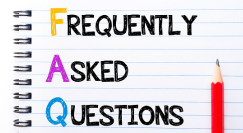
Yes.
Credit cards rarely work anywhere in Cuba. You will want to exchange
money into Cuban convertible pesos (CUC.) There is a 13% exchange change fee, so
you will get about $87 for every $100. Exchange money only at the airport, a Cadecas
(CADECA) or change house or bank. Do not
exchange money on the street or in unknown situations.The same fee applies regardless of where the money is exchanged, and you
must present your passport to make the conversion. Bills that are torn
or written will not be on accepted.
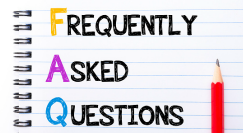
The
average monthly salary in Cuban even for professionals is $20 to $25. Tipping
is greatly appreciated.
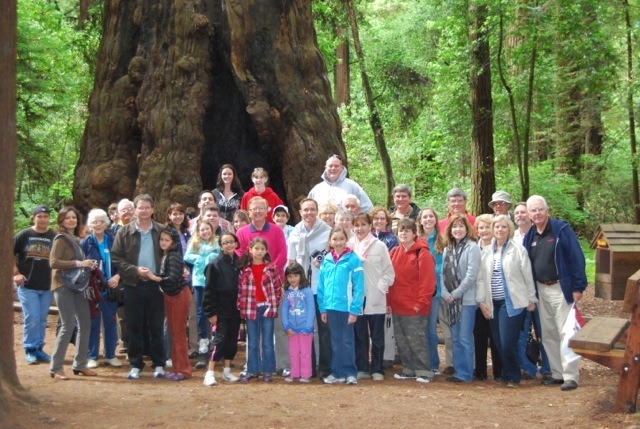
Yes. Please call our office with group travel inquiries. We will assist you in booking the best price for your group. Group leaders receive travel benefits. Call at 1-866-475-7023.
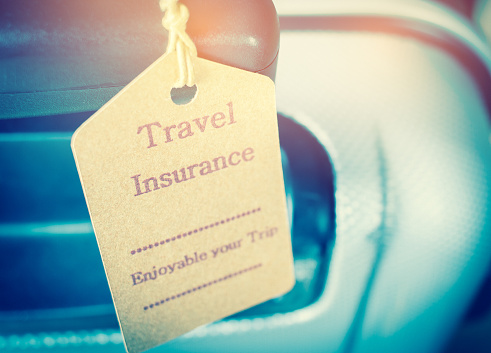
Each supplier offers travel insurance with their itineraries. We also offer separate coverage through outside companies offering a broad range of protection for situations such as medical emergencies, weather, luggage loss or delays, and other coverage. Both options will be discussed with you prior to booking to see which would provide the best coverage, at the best price.
Click here to begin pricing out Travel Insurance
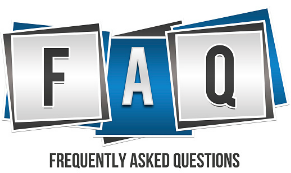
To check availability & pricing, simply call 1-800-942-3301. Agents are available from Monday - Friday from 9 a.m. to 8 p.m. (Eastern Standard Time) Saturdays from 10 a.m. to 3 p.m. year round, and Sundays from 12 p.m. to 4 p.m. January through May. If you prefer, you can email your request to [email protected].
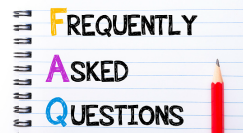
There are lots of cobblestone and damaged streets, so
accessibility is limited. Many hotels do not have elevators.
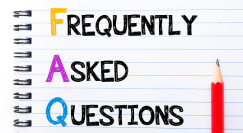
Yes.
Again use common sense. Stay in crowded areas and with your group. Don't
wander, especially at night. It is a very safe place, but since they know
US citizens carry cash, there are pick pockets. You may see some people
begging for soap, pens or other necessities. While it could be annoying
or emotional, they are not dangerous. Leave valuables on the ship or in your
hotel room safe. Avoid wearing expensive jewelry. Use discretion when
handling cash publicly.
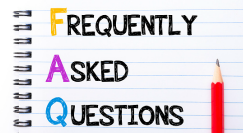
Drink
only bottled water.
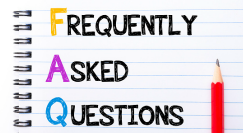
Yes. Please see the information listed below.
Embassy of the United States, American Citizen Services Unit
Calzada, between L and M Vedado, Havana, Cuba
Phone: 011-53-7-839-4100 | Fax: 011-53-7-839-4247
Hours: Monday to Thursday, 8 a.m. to 4:30 p.m., and Friday 8:00 a.m. to 3:30 p.m. (Closed on U.S. and Cuban federal holidays)
Emergency and after-hours phone: (53) (7) 839-4100; press 1
For the most up-to-date information, visit
www.havana.usembassy.gov/lost/stolen_passport.html
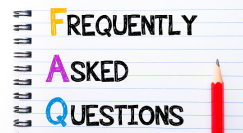
Only
at some hotels & Wi-Fi hotspots in public areas, and there will likely be a
charge. There is limited technology and frequent outages.
OFAC regulations generally authorize persons subject to U.S. jurisdiction and those sharing a dwelling with them as a family to visit a close relative in Cuba, including a close relative who is a Cuban national or a person ordinarily resident in Cuba, or to visit or accompany a close relative who is located in or traveling to Cuba pursuant to the authorizations in § 515.562 (official government business), § 515.563 (journalistic activity), § 515.564(a) (professional research), § 515.565(a)(1)(i) through (iv) and (vi) (educational activities), § 515.566 (religious activities), § 515.575 (humanitarian projects), or § 515.576 (activities of private foundations or research or educational institutes). A close relative is defined as any individual related to a person â??by blood, marriage, or adoption who is no more than three generations removed from that person or from a common ancestor with that person.â?
For a complete description of what this general license authorizes and the restrictions that apply, see 31 CFR § 515.339 and § 515.561. In accordance with the NSPM, OFAC is amending this general license to exclude from the authorizations direct financial transactions with entities and subentities identified on the State Departmentâ??s Cuba Restricted List. For a description of the scope of the prohibition on direct financial transactions and the restrictions and exceptions that apply, see 31 CFR § 515.209. [11-08-2017]
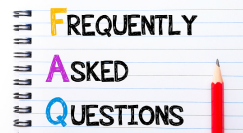
As you would for any island, make sure you have sun glasses, hats, sunscreen and good walking shoes. Restrooms are not easy to find, and even more complicated at times is toilet paper, so bring wipes with you. Toilet paper or wipes do not go in the toilet, but rather in a garbage can.
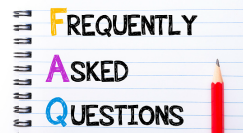
For US Citizens not born in Cuba, you will need a US passport that is valid
for at least 6 months after the date you travel to Cuba. A visa is
required for U.S. Citizens to travel to Cuba. The cost of the Visa is included
in our travel packages.
Cuban-born citizens who came to the U.S. on or after January 1, 1971, must
enter Cuba using their Cuban passports; however, such persons must use their
U.S. passports to enter and depart the United States. They do not need a visa.
They do however need a Passport Habilitation. Please refer to the U.S.
Embassy in Cuba website for more information. Those who left Cuba
prior to January 1, 1971, must travel to Cuba with their U.S. passports. But
unlike U.S. born Americans, they will need a special type of visa, called an
HE-11 visa, which they need to apply for prior to travel. The visa application
process can take up to 90 days.
You have to travel with an approved tour company that is in compliance with OFAC regulations. You must maintain a full schedule of meaningful interactions with the local Cuban People. You must document your activities and transactions and maintain the records for 5 years.
Effective June 5, 2019, a regulatory amendment to the CACR removes an authorization for people-to-people educational travel that was conducted under the auspices of an organization that is subject to U.S. jurisdiction and that sponsors such exchanges to promote people-to-people contact (group people-to-people educational travel). This amendment also includes a grandfather clause authorizing certain group people-to-people educational travel that previously was authorized where the traveler has already completed at least one travel-related transaction (such as purchasing a flight or reserving accommodation) prior to June 5, 2019.
Previously, on June 16, 2017, the President issued National Security Presidential Memorandum-5 on Strengthening the Policy of the United States Toward Cuba (NSPM). On November 9, 2017, OFAC amended the CACR to implement the NSPM. On April 17, 2019, the Administration announced regulatory changes to further implement the NSPM and the Presidentâ??s foreign policy toward Cuba, including that the Department of the Treasury would further restrict non-family travel. This regulatory action implements portions of the Presidentâ??s foreign policy toward Cuba as announced on April 17, 2019. In addition to the regulatory changes, OFAC is updating this Frequently Asked Question (FAQ) 3 as well as others, including with respect to the authorizations for travel and carrier services providers in connection with people-to-people educational travel. The FAQs that are being updated are: 1, 2, 3, 4, 12, 13, 15-17, 27-30, 37-42. OFAC will continue to update FAQs in conjunction with any additional amendments to the CACR.
Please note that the Cuba embargo remains in place, and most transactions between the United States, or persons subject to U.S. jurisdiction, and Cuba continue to be prohibited. OFAC continues to enforce the prohibitions of the CACR. [06-04-2019]
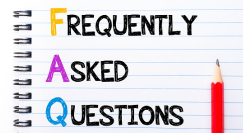
Cuba
is a year round destination. Summers are hot, and it's hurricane season,
so better deals can be find during this time. High season is considered
December to April. April, May and November are good months to travel as
well, as there are less crowds and the weather is more mild than in the summer
months.
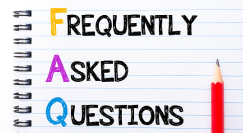
Per U.S. regulations, you are allowed to bring back $800 worth of goods
for personal use, including 2 bottles of rum pp and up to 100 cigars pp. Informational materials, such as books, art
(including handicrafts, ceramics, sculptures), music and videos, are not
included in this amount, and do not count towards the limit.
Note: There are cigars being sold that are not authentic. Make sure and
purchase from a farm or cigar shop rather than someone in a market or on the
street.
For more information on limits on duty and tax exemptions https://www.cbp.gov/travel/international-visitors/kbyg/customs-duty-info
See the
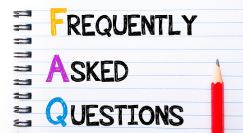
Effective June 5, 2019, there is no general license authorizing people-to-people educational activities in Cuba. The term â??people-to-people travelâ? refers to an authorization, subject to conditions, for persons subject to U.S. jurisdiction to engage in certain educational exchanges in Cuba on an individual basis or under the auspices of an organization that is a person subject to U.S. jurisdiction and sponsors such exchanges to promote people-to-people contact.
On November 9, 2017, in accordance with the NSPM, OFAC amended the general license for people-to-people educational activities in Cuba to remove the authorization for individual peopleto-people educational travel. Effective June 5, 2019, in further accordance with the Presidentâ??s foreign policy toward Cuba announced in April 2019, OFAC removed the authorization for group people-to-people educational travel in § 515.565(b). There is a grandfather provision in § 515.565(b) that authorizes certain group people-to-people educational travel that previously was authorized where the traveler has completed at least one travel-related transaction (such as purchasing a flight or reserving accommodation) prior to June 5, 2019. For a complete description of what this general license authorizes and the restrictions that apply, see 31 CFR § 515.565.
The export or reexport to Cuba of items subject to the EAR, including vessels and aircraft used to provide carrier services, requires separate authorization from the Department of Commerce. See 31 CFR § 515.533. For additional information regarding BISâ??s regulatory amendments, see BISâ??s Cuba webpage. [06-04-2019]
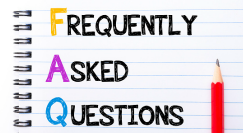
Under all of the General License categories of travel, you must not stay in hotels, nor purchase services from companies owned by the military.
Please see the list of prohibited entities listed on this page: https://www.state.gov/e/eb/tfs/spi/cuba/cubarestrictedlist/275331.htm
